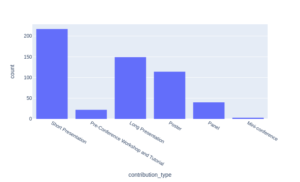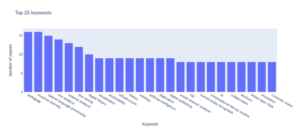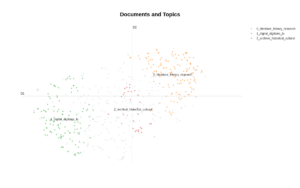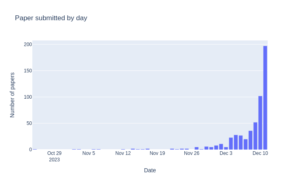These recommendations are based on the “Handreichung für den Begutachtungsprozess der DHd-Jahrestagungen” prepared by Manuel Burghardt, Lisa Dieckmann, Svenja Guhr, Nils Reiter, Walter Scholger, Timo Steyer, Peer Trilcke, Ulrike Wuttke on behalf of DHd (Digital Humanities in the German-speaking area), and were expanded and adjusted by Anne Baillot, Walter Scholger and Toma Tasovac. [Download PDF]
1. General recommendations for reviewers
- Before accepting the review, please consider potential conflicts of interest or biases that may hinder your partiality.
- Read the expanded review criteria (see below) in full and use them as the basis for your evaluation. Please make the relationship between the score (number of points you are giving) and the criteria this score is based on as explicit as possible.
- Please provide constructive feedback that clearly points out existing weaknesses to the authors and offers concrete suggestions for improvement.
- Refrain from belittling or derogatory formulations in your review. The review should critically evaluate the submission, but always be constructive in tone.
- If you have objections to the writing style, cite specific examples/the passages in question.
- Even if you personally disagree with basic premises of the submission, please critically question whether rejection of the same can be justified with objective arguments. Likewise, please do not reject a submission simply because you are not personally interested in the relevant subject area, but rather make use of the option to decline review in such cases.
- Please provide appropriate feedback on contributions for which you have no critical comments. In such cases, emphasize the particular strengths of the contribution.
- The focus of the review is the contribution. Especially in the case of early career scholars, you may consider their disciplinary and academic background.
- Personal and/or political opinions expressed by authors (e.g., on social media) are not part of the review process and should not be considered.
- Reviewers should reflect on their own potential unconscious biases and, as much as possible, exclude them from the review process.
2. Bias criteria for declining review
Please check the following list of bias criteria thoroughly before accepting any review as well as when conducting a review. Criteria A to C should lead to declining a review. In the case of criteria D to F, you as the reviewer should make a decision on a case-by-case basis.
This list does not cover all bias scenarios. Each reviewer is encouraged to thoroughly and conscientiously reflect upon their own biases regarding a submission and, when in doubt, decline to review.
Exclusion criteria
A. Close relationships: first-degree relationships such as close family, marriage, civil partnership, romantic partners, etc.
B. Existing or planned collaboration: current or planned close scientific collaboration, e.g. joint publications, joint project implementation.
C. Existing, imminent, or recent professional hierarchical relationship: official subordination or a supervisory relationship up to three years after termination of the relationship, as well as imminent or planned official dependence or supervisory relationship (from teacher-student relationship up to and including the postdoc phase).
Case-by-case decision
D. Past close cooperation: significant scientific cooperation within the last 1.5 years, e.g. joint publications, joint project realization.
E. Competition: preparation of a proposal or implementation of a project on a closely related research topic.
F. Distant kinship or other close personal relationship: kinship relationships that do not fall under A), other personal ties or conflicts.
Review Criteria
As you prepare your proposals, you are welcome to check the review criteria here: https://adho.org/wp-content/uploads/2023/10/ADHO_conference_evaluation_criteria.pdf
Further explanation of the revised ADHO review criteria can be found here: https://adho.org/2023/12/18/a-brief-explanation-of-the-revised-adho-conference-review-criteria/



